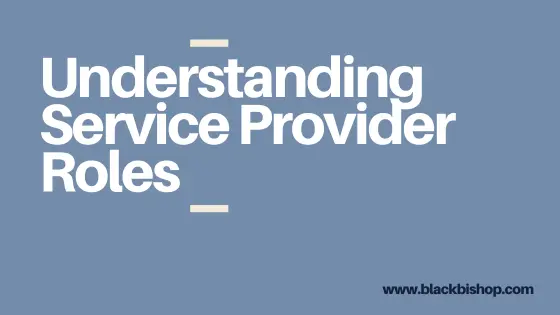When setting up a company retirement plan, selecting a 401(k) service provider is a fiduciary decision that requires due diligence and documentation. (The same is true when changing plan providers.)
Also required is the ongoing monitoring of service providers to ensure they’re fulfilling their obligations (doing what you paid them to do and doing a good job at it ;-).
Let’s look at the service providers involved in most 401(k) plans.
401(k) Service Providers
There are 3 main administrative service providers that can be hired separately or bundled together:
Recordkeeper:
- Responsible for tracking contributions, earnings, and investments, the participant platform, directing the Custodian to execute trades as requested by plan participants, valuing investments, providing participants with statements on their accounts, processing distribution checks, etc.
Third-Party Administrator (TPA):
- Responsible for keeping the plan in compliance with ERISA and IRS regulations, performing an annual accounting, generating certain documents that are required to be generated each year (SARs, participant certificates, 1099Rs), completes the Form 5500 and schedules, etc.
Note: the TPA is not to be confused with the “Plan Administrator” who is documented in the plan documents as a key fiduciary having responsibility to administer the plan in accordance with regulations – and is typically a named role or person at the company. (The Plan Administrator usually hires a TPA to handle many of the administration functions.)
Custodian:
- Responsible for holding the plan assets in a trust and executing trade instructions sent by the plan recordkeeper.
Additional Plan Service Providers May Include:
Auditor / CPA:
- Responsible for auditing a plan for annual compliance. (Federal law requires employee benefit plans with 100 or more participants to have an audit by a CPA as part of their obligation to file an annual return / report (Form 5500 Series).
ERISA Attorney:
- Responsible for providing legal counsel, drafting legal documents, updating and reviewing plan documents, and representing clients before courts, administrative agencies, and other tribunals.
Insurance Provider (ERISA Bond, Fiduciary Insurance):
- Responsible for underwriting the required ERISA bond for the plan and optional fiduciary insurance.
Advisor:
- When acting as a broker, may sell investments and provide general education to the plan sponsor and participants.
- As an Investment Advisor Representative (IAR), may also provide investment advice to the plan sponsor as a 3(21) fiduciary.
- As a Fiduciary Advisor under the Pension Protection Act, may provide investment advice to the plan participants.
3(38) Investment Manager
- Responsible for managing the plan investments, taking on the primary fiduciary responsibility for investment decisions.
Documenting Service Provider Due Diligence
In your plan’s compliance file, you should have documentation that shows what you reviewed and how you decided upon each of your plan’s service providers.
On a regular basis you should review their services and be able to demonstrate a prudent provider monitoring process is in place.
If you need assistance with building your plan’s compliance file and documenting a review of plan providers, contact us and we’d be happy to help. Additionally, we have a plan provider review checklist we’d be happy to provide you with upon request.



